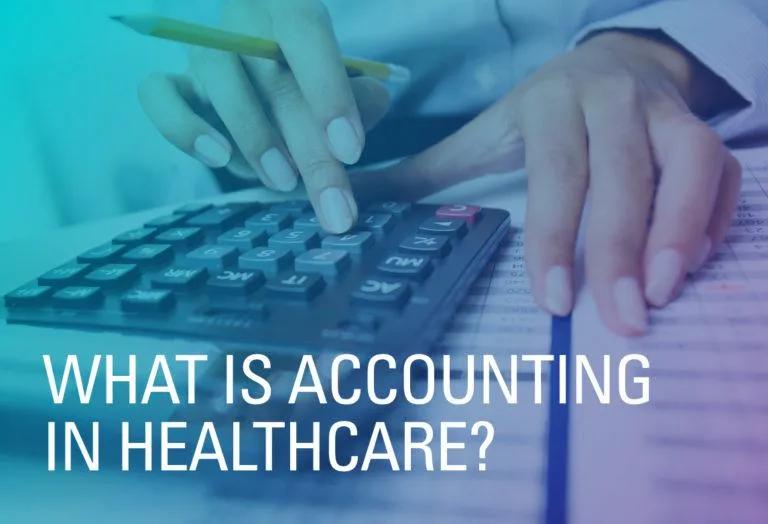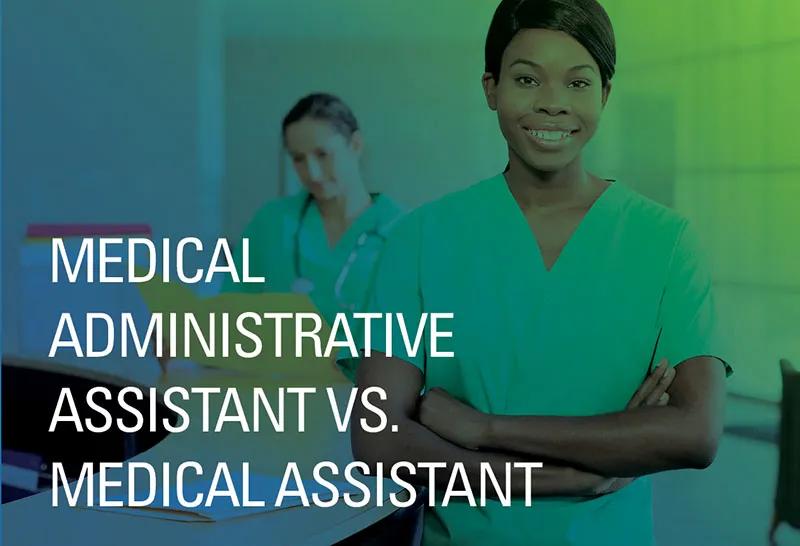What is Healthcare Accounting?

Entry-level positions performing healthcare accounting functions help healthcare organizations collect, input, track, and report their financial information. This often involves performing duties related to the recording of the organization’s financial data, verifying the information’s accuracy and completeness, and creating financial reports.
If you enjoy working with numbers and are interested in a more behind-the-scenes healthcare role, a role with responsibilities in healthcare accounting may be a good choice for you. Here we share more about what entry-level roles with healthcare accounting functions do, and where they work. We also talk about how to pursue entry-level roles with healthcare accounting tasks, ways to advance your career in this type of role, and steps you can take to get started today.
What Do Healthcare Accounting Workers Do?
Those performing healthcare accounting functions may use basic accounting principles to collect and organize financial data for healthcare facilities and organizations, and may also create reports to show the organization’s financial status. Individuals working in roles responsible for basic healthcare accounting functions may engage with various bookkeeping software programs, and input and review financial data within spreadsheets and organizational databases.
Individuals in entry-level positions with healthcare accounting tasks may have job responsibilities such as:
- Recording financial data, including monies that are both incoming and outgoing
- Balancing patient accounts, which may involve collecting and processing payments from patients and/or insurance companies
- Verifying that insurance claims and patient bills are accurate and complete
- Resolving billing or reimbursement-related inaccuracies or complaints
- Completing payroll for the healthcare organization’s staff
- Preparing financial reports for regulatory agencies, such as those used for tax purposes
Depending on the employer, an administrative assistant or secretarial position may perform healthcare accounting functions in addition to other clerical duties. These can include opening and dispersing incoming mail, maintaining patient or staff files, and performing other administrative tasks.
Related Article: Healthcare Accounting Salary Information
Healthcare Accounting Work Environments
The need for healthcare accounting functions can be found in a variety of settings. These include physician’s offices, hospitals, and other healthcare facilities such as nursing homes or assisted living. Insurance companies and healthcare support organizations also sometimes employ entry-level roles with healthcare accounting functions.
This type of work generally involves working alone, although it can also require working with others. In the latter, this can entail collaborating with other staff or interacting with patients to handle billing issues.
How to Pursue a Role Involving Healthcare Accounting
If healthcare accounting tasks sound like they may be a good fit for you, you might also be wondering how to enter this career path. Some employers only require a high school diploma for this type of role, while others prefer some training in accounting principles.1
Entry-level accounting training can help a candidate for a position with healthcare accounting responsibilities perform required job duties, such as using basic accounting software. On-the-job training may also be required, enabling the employee to learn the specific software and financial programs used by their employer.
If you enter this field and find that you want to advance your career, this typically requires obtaining additional education, possibly a bachelor’s degree or higher, along with gaining a higher level of experience.
Start Working Toward a Career in Healthcare Accounting
Does healthcare accounting sound like a good career path for you? If so, Ultimate Medical Academy (UMA) offers a Healthcare Accounting associate degree program. This program is available online and can prepare you for an entry-level medical administrative assistant position with healthcare accounting responsibilities in 18 months.2
When you enroll in UMA’s Healthcare Accounting associate degree program, you will learn various accounting principles and software applications. Since this position involves working in the healthcare field, we also discuss medical terminology, healthcare claims processing, the healthcare claims cycle, anatomy, physiology, and more. UMA’s Healthcare Accounting associate degree program does not prepare graduates to sit for certifications like the Certified Bookkeeper designation.
Obtaining your Healthcare Accounting associate degree at UMA offers other benefits as well. This includes gaining access to our helpful and understanding student support teams. Need help paying for your healthcare education? Our Student Finance advisors are available to discuss your options. Struggling with a particular course or assignment? Our Academic Services team is here to help you overcome your challenges, providing one-on-one support if you want or need more specialized attention.
Our support doesn’t stop once you’ve earned your degree as UMA continues to provide our students assistance after graduation. We can help you with resume preparation and provide guidance for your upcoming job interviews. We also have worked with many healthcare employers in our efforts to help our graduates find jobs. We’d love to connect you with one (or more) when doing your job search!
And should you decide to advance your career in healthcare accounting by pursuing a higher level of education, UMA has education partners as well. These partnerships can help you make the most of your UMA education by assisting with the transfer of certain credits, potentially enabling you to complete a program at one of these partnership institutions on an accelerated schedule, and sometimes even possibly qualifying you for educational grants from that institution.
If you have questions or want to learn more about how UMA can help you start your healthcare career, contact us today. Our caring and compassionate staff would love to hear more about your career goals. You can reach out by phone, or you can chat with us online.
1 Bureau of Labor Statistics. Occupational Outlook Handbook. Bookkeeping, Accounting, and Auditing Clerks. How to Become a Bookkeeping, Accounting, or Auditing Clerk. https://www.bls.gov/ooh/office-and-administrative-support/bookkeeping-accounting-and-auditing-clerks.htm#tab-4
2 Completion time varies depending on individual student.
Request Information
Talk with us. Start your journey.
Complete this form and we'll call you to explore options at UMA and answer your questions. We'll also email you info on how to get started. We're with you at every step!
Request Information
Talk with us. Start your journey.
Complete this form and we'll call you to explore options at UMA and answer your questions. We'll also email you info on how to get started. We're with you at every step!
About the Author
 Adam Fenster
Adam FensterAdam Fenster is a senior copywriter at Ultimate Medical Academy, with journalism experience from his time as a reporter and editor for multiple online and print publications. Adam has been covering healthcare education since 2019, with an emphasis on topics such as wellness, healthcare employment, and job preparedness. He received his BA in journalism from the University of South Florida.
Related Content


